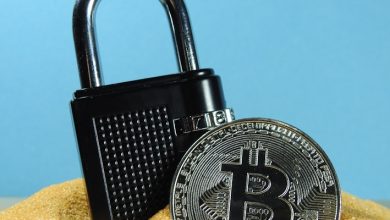Myth: Blockchain Technology Cannot Be Hacked

- Understanding the common misconception about blockchain security
- Examining the vulnerabilities in blockchain technology
- Debunking the myth of blockchain’s invincibility to hacking
- Exploring real-world examples of blockchain security breaches
- Challenges faced by blockchain developers in ensuring security
- Tips for enhancing the security of blockchain networks
Understanding the common misconception about blockchain security
One common misconception about blockchain security is that it is completely unhackable. While blockchain technology is indeed very secure, it is not immune to hacking attempts.
It is important to understand that blockchain security is not absolute. While the decentralized nature of blockchain makes it more secure than traditional centralized systems, there have been instances of hacking and security breaches in the past.
One of the main reasons for the misconception that blockchain cannot be hacked is the fact that it has never been successfully hacked. However, this does not mean that it is impossible. As technology evolves, so do hacking techniques, and it is crucial to stay vigilant and proactive in protecting blockchain systems.
It is essential for organizations and individuals using blockchain technology to implement robust security measures, such as encryption, multi-factor authentication, and regular security audits, to mitigate the risk of hacking.
Examining the vulnerabilities in blockchain technology
While blockchain technology is often touted as being secure and unhackable, it is not without vulnerabilities. These vulnerabilities can be exploited by hackers to compromise the integrity of the blockchain network and steal sensitive information. It is essential to examine these vulnerabilities to understand the potential risks associated with blockchain technology.
One vulnerability in blockchain technology is the 51% attack, where a single entity or group of entities controls more than half of the network’s computational power. This allows them to manipulate the blockchain by excluding or modifying transactions, double-spending coins, or preventing new transactions from being confirmed. Such attacks can undermine the security and trustworthiness of the blockchain network.
Another vulnerability is the smart contract bugs, which are vulnerabilities in the code of smart contracts that can be exploited to steal funds or disrupt the operation of decentralized applications. These bugs can lead to financial losses and damage the reputation of the blockchain platform.
Moreover, there are vulnerabilities related to the human factor, such as social engineering attacks, phishing scams, and insider threats. These vulnerabilities rely on manipulating human behavior to gain unauthorized access to the blockchain network and compromise its security. It is crucial to educate users about these risks and implement security measures to mitigate them.
Overall, while blockchain technology offers many benefits in terms of security and transparency, it is not immune to hacking. By examining and addressing these vulnerabilities, we can enhance the security of blockchain networks and build trust in the technology’s capabilities.
Debunking the myth of blockchain’s invincibility to hacking
While blockchain technology is often touted as being unhackable, the reality is that it is not immune to security breaches. Hackers have found ways to exploit vulnerabilities in blockchain networks, leading to incidents of theft and fraud.
One common misconception is that the decentralized nature of blockchain makes it impervious to hacking. However, hackers have successfully carried out attacks on blockchain networks by targeting individual users or exploiting bugs in the underlying code.
Another myth is that the cryptographic algorithms used to secure blockchain transactions are foolproof. While these algorithms are highly secure, they are not infallible. Hackers have been able to bypass encryption measures through sophisticated techniques such as social engineering and phishing attacks.
It is important for users and developers to be aware of the limitations of blockchain technology and take proactive measures to enhance security. This includes implementing multi-factor authentication, regularly updating software, and conducting security audits to identify and address vulnerabilities.
Exploring real-world examples of blockchain security breaches
There have been several instances where blockchain technology has been compromised, proving that it is not completely immune to security breaches. One notable example is the 2016 attack on The DAO, a decentralized autonomous organization built on the Ethereum blockchain. The hackers exploited a vulnerability in the smart contract code, resulting in the theft of millions of dollars worth of cryptocurrency. This incident highlighted the importance of thoroughly auditing smart contracts to identify and address potential security flaws.
Another case of a blockchain security breach occurred in 2018 when the cryptocurrency exchange Coincheck was hacked, resulting in the loss of over $500 million worth of digital assets. The hackers gained access to the exchange’s hot wallet where they siphoned off the funds. This incident underscored the need for robust security measures to protect digital wallets and exchanges from unauthorized access.
These real-world examples serve as a reminder that while blockchain technology offers enhanced security through its decentralized and immutable nature, it is not impervious to hacking attempts. It is essential for organizations and individuals utilizing blockchain to implement stringent security protocols, conduct regular audits, and stay informed about the latest threats and vulnerabilities in the ecosystem.
Challenges faced by blockchain developers in ensuring security
Blockchain developers face several challenges when it comes to ensuring security in the technology. One of the main challenges is the risk of hacking due to vulnerabilities in the system. Hackers are constantly looking for ways to exploit these vulnerabilities and gain unauthorized access to the blockchain network.
Another challenge is the complexity of blockchain technology itself. As the technology evolves, developers need to keep up with the latest security measures and protocols to protect the network from potential threats. This requires continuous learning and adaptation to new security standards.
Moreover, the decentralized nature of blockchain makes it difficult to implement security measures across the entire network. Developers need to ensure that each node in the network is secure and protected from attacks, which can be a daunting task.
In addition, the lack of regulatory oversight in the blockchain industry poses a challenge for developers in terms of compliance with security standards. Without clear guidelines and regulations, developers may struggle to implement the necessary security measures to protect the network.
Tips for enhancing the security of blockchain networks
Enhancing the security of blockchain networks is crucial to protect against potential hacks and breaches. Here are some tips to help strengthen the security of your blockchain technology:
- Regularly update your blockchain software to ensure you have the latest security patches and features.
- Implement multi-factor authentication to add an extra layer of security to your network.
- Encrypt your data to protect sensitive information from unauthorized access.
- Use secure private keys and store them in a safe location to prevent unauthorized access to your blockchain network.
- Monitor your network for any suspicious activity and investigate any potential security threats promptly.
By following these tips, you can enhance the security of your blockchain network and reduce the risk of potential hacks and breaches. Remember, staying proactive and vigilant is key to maintaining the integrity of your blockchain technology.



